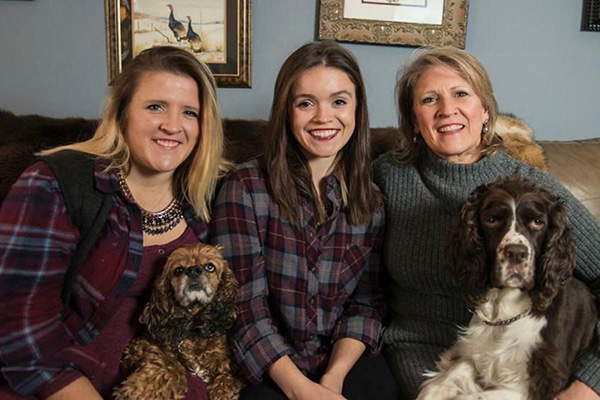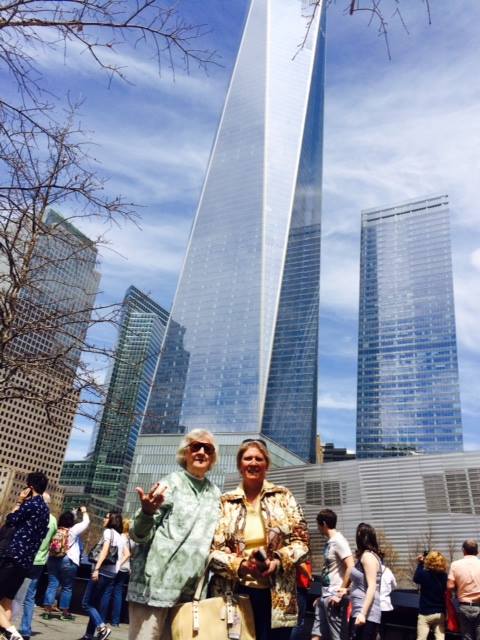
MANHATTAN — Earlier this year, when Kate Baragona was diagnosed with cancer, she was stunned. But the news was also a reminder of how far-reaching the effects of the Sept. 11, 2001 terrorists attacks continue to be 18 years after the fact.
As New Yorkers remembered the horrible events of 9/11 this past week, Baragona reflected on her own story of how the aftermath of the attacks has hit her personally.
Kate Baragona, 60, a mother of two adult children, now lives in Mississippi. She used to work for Citi Global Markets on Greenwich Street in lower Manhattan before and after 9/11, breathing the toxic air from the debris that remained after the attacks. She missed the attacks themselves, because at the time the two planes struck she was in her car driving to work from her home in New Jersey.
Fast forward 17 years to last October, when Baragona was making the hour-plus drive from her home in Poplarville, Miss., to New Orleans to see a doctor about what she thought would be a routine knee-replacement surgery.
“You have to have a general physical before the surgery, and I went to a doctor I had never been to before in Louisiana,” Baragona said. “We did all the tests beside a mammogram, which he made me promise that I would come back for.”
When she returned to a hospital in New Orleans post-surgery for the mammogram, the results didn’t match up to those from a mammogram she had had the previous year. She was then required to have two more mammograms and an ultrasound.

The tests revealed that Kate had a form of breast cancer that required surgery to remove. She had that surgery this past February. Afterward, a lump began to form on the same leg as where she had her knee surgery.
Tests revealed Baragona had two types of breast cancer, plus a form of cancer in her leg.
“How is it that a person gets three types of cancer in a flash?” she asked.
Baragona’s doctors in Louisiana tried to treat her cancers aggressively and contemplated amputating her leg. They didn’t know that her cancers were related to 9/11.
Meanwhile, Baragona sought referrals for treatment at leading cancer centers across the country. One of those places was Memorial Sloan Kettering Cancer Center in Manhattan.
“Within six hours of the referral, Memorial Sloan Kettering said that they would call me back on Monday. That was on a Friday. On Monday, they told me that I had an appointment scheduled for Thursday,” she said, meaning she would have to fly to New York on short notice.
Doctors at Memorial Sloan Kettering are more familiar with rare cancers, and are not surprised that Baragona’s cancers were related to her time working near Ground Zero post-9/11.
According to Michael Barasch, an attorney whose firm has represented thousands of clients suffering from 9/11-related illnesses, 425,000 people have faced adverse effects of the post 9/11 pile, including 300,000 office workers. Baragona is one of them.
“Those people are what I like to call the ‘forgotten victims,’” Barasch said.
“I had no symptoms. It was confusing,” Baragona said. If it wasn’t for her knee surgery, she never would have known she had cancer caused by working near the disaster zone.
“Ten years or 18 years later, why would you ever think it was due to your exposure years earlier? You wouldn’t,” Barasch said. Baragona, who moved to Mississippi in 2014, now must go to New York for evaluations and mammograms at Memorial Sloan Kettering once every six months.
Meanwhile, she takes a daily pill that administers a low dose of chemotherapy.
Her healthcare in New York is being covered by the World Trade Center Health Program.
Since 2011, more than 21,000 survivors who lived or worked in the area of Ground Zero between Sept. 11 2001 and May 2002 have enrolled in the program.
Fewer than 100 survivors enrolled in the program are from Louisiana, where Kate received her initial medical treatment, having no idea at the time how 9/11 had affected her.
Ortiz is a digital content writer/producer for DeSales Media Group.
